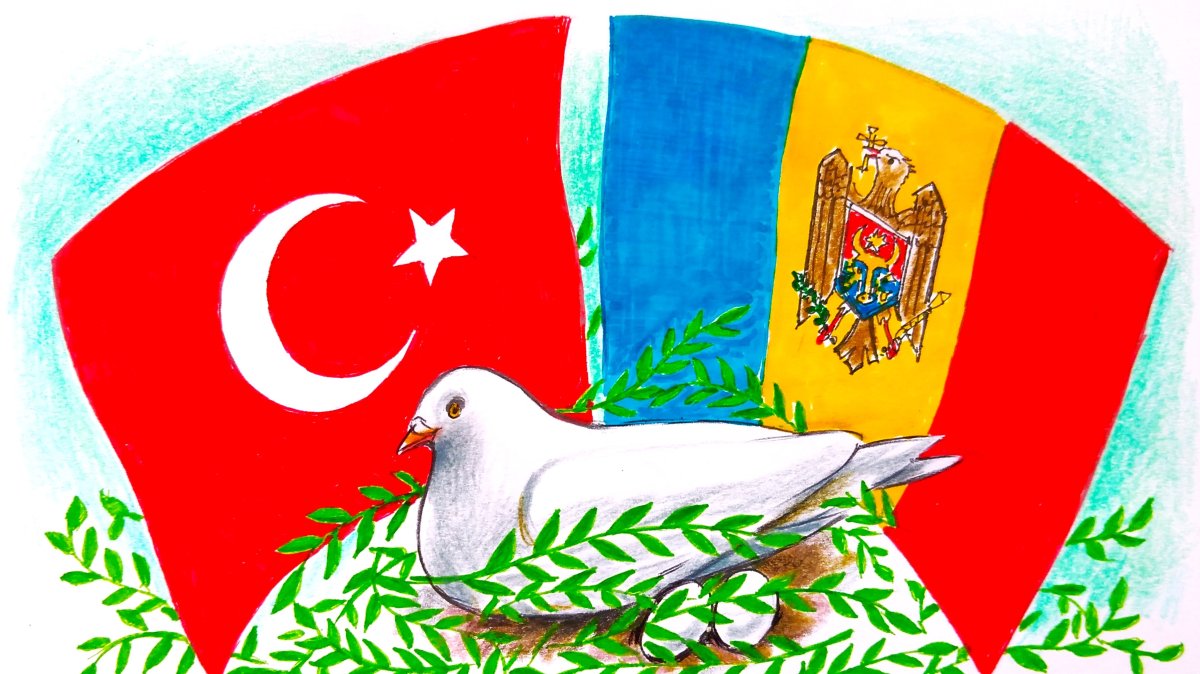Oleg Serebrian’s appointment as Moldovan ambassador to Ankara sends a strong message.
Moldovan-Turkish relations have always been special and important for Chisinau. Türkiye was among the first states with which the Republic of Moldova signed bilateral treaties after the latter declared its sovereignty from the USSR.
It was the early 1990s, and Moldova was not yet an independent state, but with the help of countries like Romania and Türkiye, it was already acting like one. Türkiye helped Moldova move from a communist-type economy to one based on a capitalist market economy, and Turkish entrepreneurs were among the first to take an interest in the Moldovan market, which was still unstable, as unstable as the political situation.
Türkiye has played an important role, including as a mediator, in the issue of Gagauz autonomy, and continues to be a factor contributing to maintaining stability, peace and harmony in the south of the Republic of Moldova, a region that Russia is trying to destabilize the situation in the whole country.
Moldova wants partnership
Oleg Serebrian is not just a Moldovan diplomat; he is the one who managed the Transnistrian conflict file, being deputy prime minister for the settlement and head of the Reintegration Policy Office from 2022 until June 2025.
Sending the most important expert on Moldova’s territorial integrity as permanent ambassador to Ankara shows that Moldova wants a strategic partnership with Türkiye, but also that it sees Türkiye as a possible key player in the context of a major geopolitical shift in Eastern Europe.
Strength and self-defense are key elements that will define the future security architecture of Eastern Europe after the end of the war in Ukraine. Moldova has realized that borders in this part of Europe are not necessarily intangible, so it is looking for partners to help strengthen its capacity to deal with Russian dangers.
Under Russian pressure
Moldova is a constitutionally neutral state and has expressed no intention to renounce this status, despite the context in the neighborhood, namely, Russian aggression in Ukraine.
Russian propaganda has repeated several times the allegation that Moldova is very close to renouncing neutrality and joining NATO, or turning into a NATO platform against Russia. This and other lying anti-Moldovan narratives have been repeated insistently since the first day of Russia’s invasion of Ukraine on Feb. 24, 2022.
However, the reality is exactly the opposite, and Russia is the only state in the world that violates Moldova’s neutrality by the presence of its illegal troops on the sovereign and constitutional territory of the Moldovan state on the left bank of the Dniester River – in the so-called Transnistria/PMR.
Serebrian, now Moldova’s new ambassador to Türkiye, underlined that the current five+two format of the Transnistrian conflict settlement talks is suspended and unworkable, suggesting that Moldova cannot sit at the same table with the aggressor-state Russian Federation, which has been an important member of the talks, in fact a supporter of the unconstitutional and illegal pro-Russian regime in Tiraspol, the capital of the unrecognized “Moldovan Nistrian Republic.”
Türkiye as guarantor
With the new diplomatic change, Türkiye’s presence in Moldova’s economy, tourism and security is expected to increase, as well as Moldova’s image in Türkiye as a lesser-known but potentially great tourist destination.
It has been almost seven years since the official visit of President Recep Tayyip Erdoğan to Chisinau. At that time, Moldova had a pro-Russian government and a pro-Russian president. However, this did not affect the special Turkish-Moldovan relationship.
Today, when Moldova is at an advanced stage of negotiations on accession to the European Union, an objective that Türkiye also has, relations between the two nations continue to develop. An important nodal point may be the Gagauz minority, a Christian Orthodox ethnic Turkic people. Moldova’s commitment to offering the Gagauz not only cultural autonomy but also extended administrative and political autonomy has created a respectable image of the Moldovan state at the European level, as well as appreciation and proof of mutual Moldovan-Turkish trust.
It is very well known that the authorities of the Gagauz autonomy maintain a fairly close relationship with Türkiye. While most of the authorities that have been in power in Comrat, the administrative center of the Gagauz Yeri autonomy, have been rather pro-Russian, even anti-Moldovan, Türkiye has kept a window open toward the Gagauz for reasons of ethnic solidarity.
At the same time, the pro-Russian powers in Comrat have always tried to use Türkiye in balancing games or as an advocate in difficult times, when they were trying to put pressure on Moldova, or when they were not receiving sufficient support of one kind or another from Russia. At the same time, Türkiye has often been a guarantor that the diversionary actions of the Gagauz authorities did not stray from the path of constitutionality.
Given Russia’s expansionist plans, which aim to annex the entire southeast of Ukraine, the so-called Novorossia, including Odessa and the entire Ukrainian Pontic coast, plans that may synchronize with the plans of some pro-Russian political actors in Gagauzia, Moldova expects Türkiye to remain and even become a more influential actor able to support Chisinau in combating any separatist plans orchestrated by the Kremlin regime.
In Moldova’s view, Türkiye is very important, especially for its ability to prevent a possible scenario of Gagauzia transforming into a “Transnistria two.”

